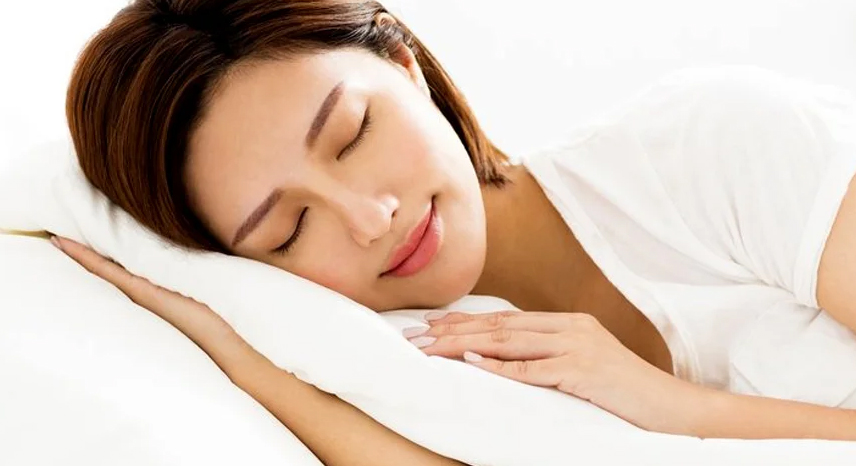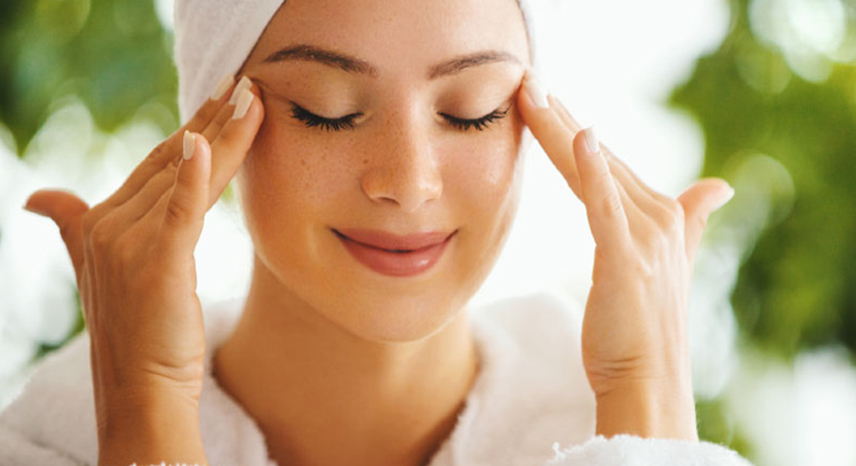The Impact of Sleep on Beauty: How Rest Affects Skin, Hair, and Health

Introduction
In our modern society, sleep is often sacrificed in the pursuit of productivity and leisure. However, an increasing body of scientific evidence underscores that sleep is much more than a period of rest—it is a vital, restorative process that directly influences our beauty and overall health. Quality sleep not only rejuvenates the mind and body but also plays a crucial role in enhancing our external appearance. From boosting collagen production in the skin to supporting hair growth and even improving our physical vitality, sleep is the unsung hero in the quest for a radiant, youthful look. This blog delves into the multifaceted impact of sleep on beauty, explores the scientific connections between rest and healthy skin and hair, offers practical tips for improving sleep quality, and emphasizes the importance of balancing work, relaxation, and proper rest as part of a holistic lifestyle.
Sleep and Skin: The Foundation of a Youthful Complexion
One of the most visible effects of sleep—or the lack thereof—is the condition of our skin. When you sleep, your body goes into repair mode. This is when cells regenerate, toxins are flushed out, and collagen, the protein responsible for skin elasticity, is produced. Here’s a closer look at how restorative sleep benefits your skin:
Collagen Production and Skin Repair
During deep sleep, the body releases growth hormones that trigger the production of collagen. Collagen is essential for maintaining skin firmness, reducing fine lines, and keeping the skin supple. As we age, collagen levels naturally decline, leading to wrinkles and sagging. Adequate sleep can help slow this process, supporting the natural repair and regeneration of skin cells.
Reducing Dark Circles and Puffiness
Lack of sleep often results in dark circles and puffy eyes. When you don’t get enough rest, blood vessels under the eyes can dilate, causing a dark tint. Restorative sleep helps to minimize these effects by reducing inflammation and allowing the body to repair the delicate skin around the eyes. A consistent sleep schedule can lead to a brighter, more refreshed appearance, making you look less tired and more vibrant.
Minimizing Wrinkles and Fine Lines
Chronic sleep deprivation increases stress levels, which in turn accelerates the breakdown of collagen and elastin fibers in the skin. This can lead to the premature appearance of wrinkles and fine lines. By ensuring you get enough quality sleep, you give your skin the time it needs to repair itself and maintain its natural elasticity, resulting in smoother, younger-looking skin.
Hair and Health Benefits: Beyond the Surface
While sleep has a profound impact on our skin, its benefits extend to our hair and overall physical recovery as well. Healthy hair and vibrant energy levels are both reflections of how well your body is functioning, and sleep plays a central role in these processes.
Hair Growth and Strength
Hair follicles, like skin cells, require proper nourishment and oxygen to grow. During sleep, improved circulation ensures that hair follicles receive an adequate supply of nutrients and oxygen, which is critical for healthy hair growth. A well-rested body is better equipped to maintain hair strength and prevent hair loss. Additionally, hormonal balance is restored during sleep, which can also influence hair health by regulating the production of sebum and supporting a healthy scalp environment.
Physical Recovery and Vitality
Sleep is the period during which your body repairs and regenerates cells. This process is essential not just for skin and hair, but for your entire system. Proper sleep helps in muscle recovery, reduces inflammation, and boosts immune function. All these factors contribute to a higher level of overall vitality and energy, which is reflected in a more dynamic and youthful appearance. When you are well-rested, you are more likely to feel energized and positive, which also boosts your confidence and radiance.
Practical Tips for Better Sleep
Improving your sleep quality doesn’t necessarily require drastic changes; small adjustments in your routine can lead to significant improvements. Here are some practical tips to help you create a sleep-friendly environment and establish healthy sleep habits:
1. Establish a Consistent Sleep Schedule
One of the most important aspects of good sleep hygiene is consistency. Going to bed and waking up at the same time every day helps regulate your body’s internal clock, making it easier to fall asleep and wake up naturally.
- Tip: Aim for 7-9 hours of sleep per night and try to stick to this schedule even on weekends.
2. Create a Sleep-Friendly Environment
Your bedroom should be a sanctuary designed for rest. Consider the following elements to optimize your sleep environment:
- Blackout Curtains: These help block out external light, signaling your body that it’s time to sleep.
- Quiet Atmosphere: Use earplugs or a white noise machine to drown out disruptive sounds.
- Comfortable Bedding: Invest in a quality mattress and pillows that support your preferred sleeping position.
- Cool Temperature: A slightly cooler room, ideally between 60-67°F (15-19°C), can promote better sleep.
3. Reduce Screen Time Before Bed
Exposure to blue light emitted by smartphones, tablets, and computers can interfere with your body’s production of melatonin, the hormone that regulates sleep.
- Tip: Limit screen time at least 30-60 minutes before bed. Consider using blue light filters on your devices if you must use them in the evening.
4. Develop a Relaxing Bedtime Routine
A calming pre-sleep routine can signal to your body that it’s time to wind down.
- Suggestions: Try reading a book, listening to soothing music, or practicing relaxation techniques such as deep breathing or meditation.
- Aromatherapy: Using essential oils like lavender or chamomile in a diffuser can create a relaxing atmosphere conducive to sleep.
5. Watch Your Diet
What you eat and drink can impact your sleep quality. Avoid large meals, caffeine, and alcohol close to bedtime, as these can disrupt your sleep patterns.
- Hydration: While it’s important to stay hydrated throughout the day, try to limit fluid intake right before bed to reduce the likelihood of waking up during the night.
Lifestyle Integration: Balancing Work, Relaxation, and Sleep
Achieving a good balance between work, relaxation, and sleep is essential for overall well-being. When your daily routine is balanced, your body functions optimally, and this harmony is reflected in your appearance.
Time Management
Managing your time effectively is crucial for ensuring you get enough rest. Prioritize tasks and set boundaries to avoid overcommitting, which can lead to chronic sleep deprivation.
- Tip: Consider implementing a time-blocking strategy to allocate specific periods for work, leisure, and rest.
Incorporate Relaxation Throughout the Day
Taking short breaks during the day to relax and decompress can prevent stress from building up and interfering with your sleep.
- Mindfulness Practices: Engage in brief mindfulness or breathing exercises during your workday to reduce stress.
- Active Breaks: Incorporate light physical activity, such as a short walk or stretching, to rejuvenate your mind and body.
Regular Physical Activity
Exercise is not only beneficial for your physical health but also for your sleep quality. Regular physical activity helps regulate your circadian rhythm, making it easier to fall asleep and wake up at consistent times.
- Exercise Routine: Aim for at least 30 minutes of moderate exercise most days of the week, but try to finish your workout a few hours before bedtime.
Scientific Insights: The Link Between Sleep and Beauty
Scientific research consistently shows that quality sleep is one of the most effective ways to maintain youthful, vibrant skin and overall health. Studies have demonstrated that during deep sleep, the body increases the production of growth hormones that stimulate collagen synthesis. Collagen is crucial for maintaining skin elasticity and reducing the appearance of fine lines and wrinkles. Moreover, proper sleep facilitates cellular repair and the removal of toxins, both of which are critical for a clear complexion.
Research has also shown that sleep deprivation can lead to elevated levels of cortisol, which not only affects your mood but also increases inflammation in the skin. This inflammation can lead to a host of issues, including acne, dryness, and accelerated aging. Conversely, adequate sleep reduces stress levels, improves blood flow, and enhances the delivery of essential nutrients to the skin. These benefits are reflected in a brighter, healthier complexion and more resilient skin.
Final Thoughts
The impact of sleep on beauty and overall health cannot be overstated. Quality sleep is the cornerstone of a well-balanced lifestyle, essential for maintaining a youthful appearance and robust health. From boosting collagen production and reducing dark circles to promoting hair growth and overall vitality, sleep acts as a natural, restorative process that benefits every aspect of your body.
Investing in a sleep-friendly environment, establishing a consistent bedtime routine, and balancing your daily schedule to prioritize rest can lead to remarkable improvements in both your appearance and your quality of life. By embracing these practices, you allow your body to repair and rejuvenate, resulting in smoother skin, stronger hair, and enhanced energy levels. Small changes in your bedtime habits—like reducing screen time before bed or creating a calming pre-sleep ritual—can have a profound impact on your overall well-being.
Remember, true beauty is not just skin deep; it radiates from a healthy, well-rested body and a balanced mind. Prioritize sleep as an integral part of your self-care routine, and you'll soon notice that the benefits extend far beyond a more youthful appearance—they lead to a happier, more vibrant you.
The journey to beauty begins with a single, well-rested night, and every effort you make to improve your sleep is an investment in your future self. Embrace the power of sleep, and let it transform your life from the inside out.
post

Lifestyle ≠ 03 March
Fashion and Wellness: How What You Wear Can Affect Your Health

Lifestyle ≠ 03 March
Future of Fashion: Exploring the Role of AI and Virtual Reality in Style

Lifestyle ≠ 03 March
The Intersection of Fashion and Music: Style Influences from Iconic Artists

Lifestyle ≠ 03 March

Lifestyle ≠ 03 March
Previous Post
Health and Beauty March 03
Innovative Beauty Tech: The Latest Gadgets and Apps to Transform Your Routine
Next Post
Health and Beauty March 03
Balancing Beauty and Wellness: Creating a Comprehensive Self-Care Routine

